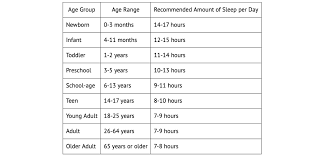The Impact of Depression on Mental Health
Depression is a common mental health disorder that affects millions of people worldwide. It is more than just feeling sad or going through a rough patch; it is a serious condition that can impact all aspects of a person’s life.
One of the key characteristics of depression is a persistent feeling of sadness and loss of interest in activities that were once enjoyable. This emotional state can lead to changes in appetite, sleep patterns, energy levels, and concentration. Individuals with depression may also experience feelings of worthlessness, guilt, and hopelessness.
Depression not only affects the individual’s emotional well-being but also their physical health. It can weaken the immune system, making the person more susceptible to illnesses. Chronic stress from depression can also contribute to the development of other health conditions such as heart disease, diabetes, and obesity.
Furthermore, depression can have a significant impact on relationships and social interactions. Individuals with depression may withdraw from friends and family, leading to feelings of isolation and loneliness. This social withdrawal can further exacerbate feelings of sadness and contribute to a cycle of negative thoughts and emotions.
It is important for individuals experiencing symptoms of depression to seek help from mental health professionals. Treatment options for depression may include therapy, medication, lifestyle changes, and support groups. With proper treatment and support, individuals with depression can learn to manage their symptoms and improve their quality of life.
Remember, it is okay to not be okay. Seeking help for mental health issues like depression is a sign of strength, not weakness. Together, we can work towards breaking the stigma surrounding mental illness and promoting a culture of understanding and compassion.
Understanding Depression: Symptoms, Diagnosis, Risk Factors, Treatments, Lifestyle Changes, and Support Strategies
- What are the symptoms of depression?
- How is depression diagnosed?
- What are the risk factors for developing depression?
- What treatments are available for depression?
- Can lifestyle changes help manage depression?
- How can I support a loved one with depression?
What are the symptoms of depression?
Depression can manifest in various ways, and recognizing the symptoms is crucial for early intervention and treatment. Common symptoms of depression include persistent feelings of sadness, emptiness, or hopelessness, loss of interest or pleasure in activities once enjoyed, changes in appetite or weight, sleep disturbances such as insomnia or oversleeping, fatigue or lack of energy, feelings of worthlessness or guilt, difficulty concentrating or making decisions, irritability or restlessness, physical aches and pains without a clear cause, and thoughts of death or suicide. It’s important to seek help from healthcare professionals if experiencing these symptoms to receive proper support and guidance.
How is depression diagnosed?
Depression is diagnosed through a combination of clinical assessment and evaluation of symptoms. Healthcare professionals, such as psychiatrists or psychologists, typically use diagnostic criteria outlined in the Diagnostic and Statistical Manual of Mental Disorders (DSM-5) to identify depression. They will conduct a thorough evaluation, which may include a physical exam, psychological assessment, and discussion of symptoms and medical history. Additionally, healthcare providers may use standardized questionnaires or screening tools to assess the severity of depressive symptoms. It is important for individuals experiencing symptoms of depression to seek help from a qualified professional for an accurate diagnosis and appropriate treatment plan tailored to their specific needs.
What are the risk factors for developing depression?
There are several risk factors that can contribute to the development of depression. These include genetic predisposition, family history of depression or other mental health disorders, traumatic life events such as loss of a loved one or abuse, chronic stress, certain medical conditions like chronic illness or hormonal imbalances, substance abuse, and certain medications. Additionally, individual personality traits, such as low self-esteem or pessimism, can also play a role in increasing the likelihood of developing depression. It is important to recognize these risk factors and seek appropriate support and treatment if needed to address and manage them effectively.
What treatments are available for depression?
There are several effective treatments available for depression that can help individuals manage their symptoms and improve their overall well-being. Common treatment options include therapy, such as cognitive-behavioral therapy (CBT) or interpersonal therapy, which can help individuals identify and change negative thought patterns and improve coping skills. Medications, such as antidepressants, may also be prescribed by healthcare providers to help regulate brain chemistry and alleviate symptoms of depression. Lifestyle changes, including regular exercise, a healthy diet, sufficient sleep, and stress management techniques, can also play a significant role in managing depression. It is important for individuals experiencing depression to work closely with mental health professionals to determine the most appropriate treatment plan tailored to their specific needs.
Can lifestyle changes help manage depression?
Lifestyle changes can play a significant role in managing depression. Engaging in regular physical activity, maintaining a healthy diet, getting an adequate amount of sleep, and practicing stress-reducing techniques such as mindfulness or meditation can all contribute to improving mood and overall well-being. Additionally, establishing a routine, setting achievable goals, and seeking social support are important aspects of managing depression through lifestyle modifications. While lifestyle changes alone may not be sufficient for severe cases of depression, they can complement other treatment options and contribute to a holistic approach to mental health care.
How can I support a loved one with depression?
Supporting a loved one with depression can make a significant difference in their journey towards recovery. It’s essential to approach them with empathy, understanding, and patience. Encourage open communication and active listening to let them express their feelings without judgment. Offer your support by being present, checking in regularly, and providing a safe space for them to share their struggles. Help them access professional help if needed, such as therapy or counseling. Remember to take care of yourself too, as supporting someone with depression can be emotionally challenging. By showing love, compassion, and consistent support, you can play a vital role in helping your loved one navigate through their depression.


